On June 28, the Ministry of Finance announced that the disbursement rate of public investment from foreign capital sources by ministries and branches in the past 6 months only reached 27.2% (VND 3,225 billion). 5/11 ministries and branches have disbursed.
Of which, the Vietnam Academy of Science and Technology achieved a rate of more than 47%, the Ministry of Transport nearly 31%, the Ministry of Agriculture and Rural Development over 30%; there are 2 ministries with very little disbursement: the Ministry of Natural Resources and Environment with a rate of more than 4%, the Ministry of Education and Training over 5%.
As for localities, the disbursement rate only reached 7.6% of the plan. Of which, 8/50 localities had a disbursement rate of over 15%, 13/50 localities have not yet disbursed the central budget capital allocated for targeted supplementary allocation to local budgets.
The reasons for the slow disbursement of public investment capital from foreign loans were pointed out by the Ministry of Finance as follows: the project was allocated capital, completed investment procedures but was slow in implementing investment readiness work (such as: slow site clearance, resettlement; not yet completed signing of design consultancy contracts...); slow adjustment of investment policies leading to slow contract signing; slow receipt of no objection from sponsors or approval from sponsors for bidding documents, related documents... "These problems are the responsibility of the project management board, project management agency and sponsors to handle", the report of the Ministry of Finance clearly stated.
One of the recommendations made by the Ministry of Finance is that the competent authorities review the detailed allocation of budget estimates to each project, ensuring that they are close to the progress and disbursement needs of the project, focusing capital on projects with good disbursement progress, priority projects that need to be completed soon, or are about to be completed. If the project is not capable of disbursement due to problems that have been unresolved for too long, it is recommended to cancel and transfer the budget to another project that is more ready. At the same time, the competent authorities coordinate closely with the Ministry of Finance, the Ministry of Planning and Investment and relevant agencies to promptly discuss with donors in case of problems arising, especially projects with changes; implement a periodic reporting regime on the disbursement status of ODA capital to the Ministry of Planning and Investment, the Ministry of Finance in accordance with regulations... The Ministry of Finance also recommends that the Ministry of Planning and Investment synthesize and report to the Prime Minister to have sanctions and recommend not to assign the capital plan for the following year when the project's problems have not been resolved or resolved.
The causes and solutions mentioned above are mostly not new and have been mentioned over and over again for many years whenever the slow disbursement of foreign loan investment capital is mentioned. In particular, the causes are mostly subjective, related to human factors. Why does this situation continue for many years? The problem probably lies in discipline, discipline, and responsibility handling.
Disbursement of ODA loans, foreign preferential loans in particular, and public investment in general play an important role in the economic growth target of 6.5% in 2023. This was also stated in the socio-economic review report of the Economic Committee presented at the 5th session of the 15th National Assembly. This agency requested the Government to drastically implement appropriate solutions to overcome the causes of slow disbursement to promote disbursement of public investment capital.
In the announcement of the conclusion of Deputy Prime Minister Le Minh Khai on the disbursement of public investment capital recently issued by the Government Office, it was also stated that in 2023, the results of public investment capital disbursement will be the basis for evaluating, rewarding, training, promoting officials, as well as handling organizations and individuals who do not complete tasks due to subjective reasons; strictly handling irresponsible investors who slow down progress... Sanctions with the fear of responsibility of leaders at all levels, sectors, and investors in disbursement are clearly an urgent demand from reality when the situation of "knowing, it's so hard, but saying it over and over again" continues year after year.
Source link




![[Photo] Cat Ba - Green island paradise](/_next/image?url=https%3A%2F%2Fvphoto.vietnam.vn%2Fthumb%2F1200x675%2Fvietnam%2Fresource%2FIMAGE%2F2025%2F12%2F04%2F1764821844074_ndo_br_1-dcbthienduongxanh638-jpg.webp&w=3840&q=75)





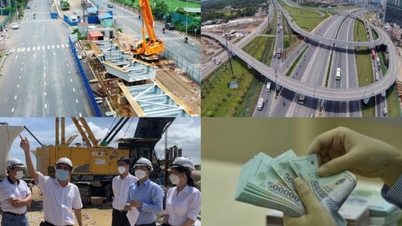

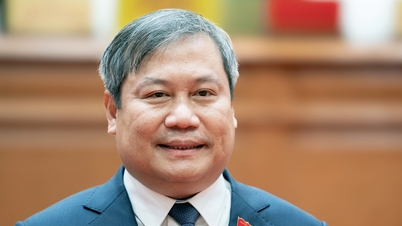

















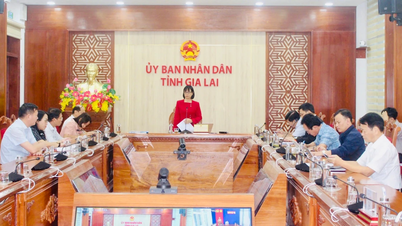








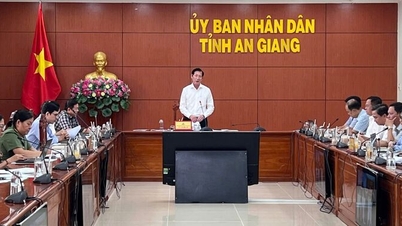






















![[VIMC 40 days of lightning speed] Da Nang Port: Unity - Lightning speed - Breakthrough to the finish line](https://vphoto.vietnam.vn/thumb/402x226/vietnam/resource/IMAGE/2025/12/04/1764833540882_cdn_4-12-25.jpeg)
















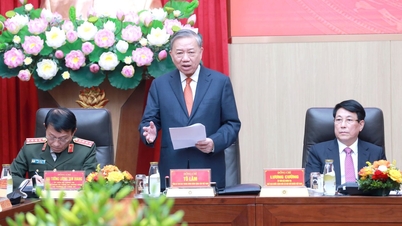

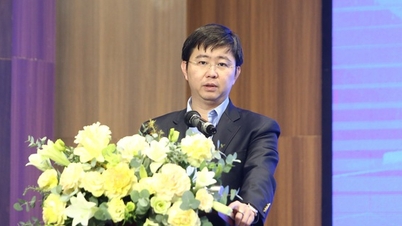

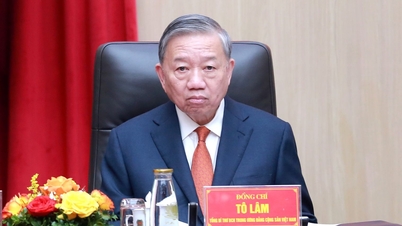


























Comment (0)